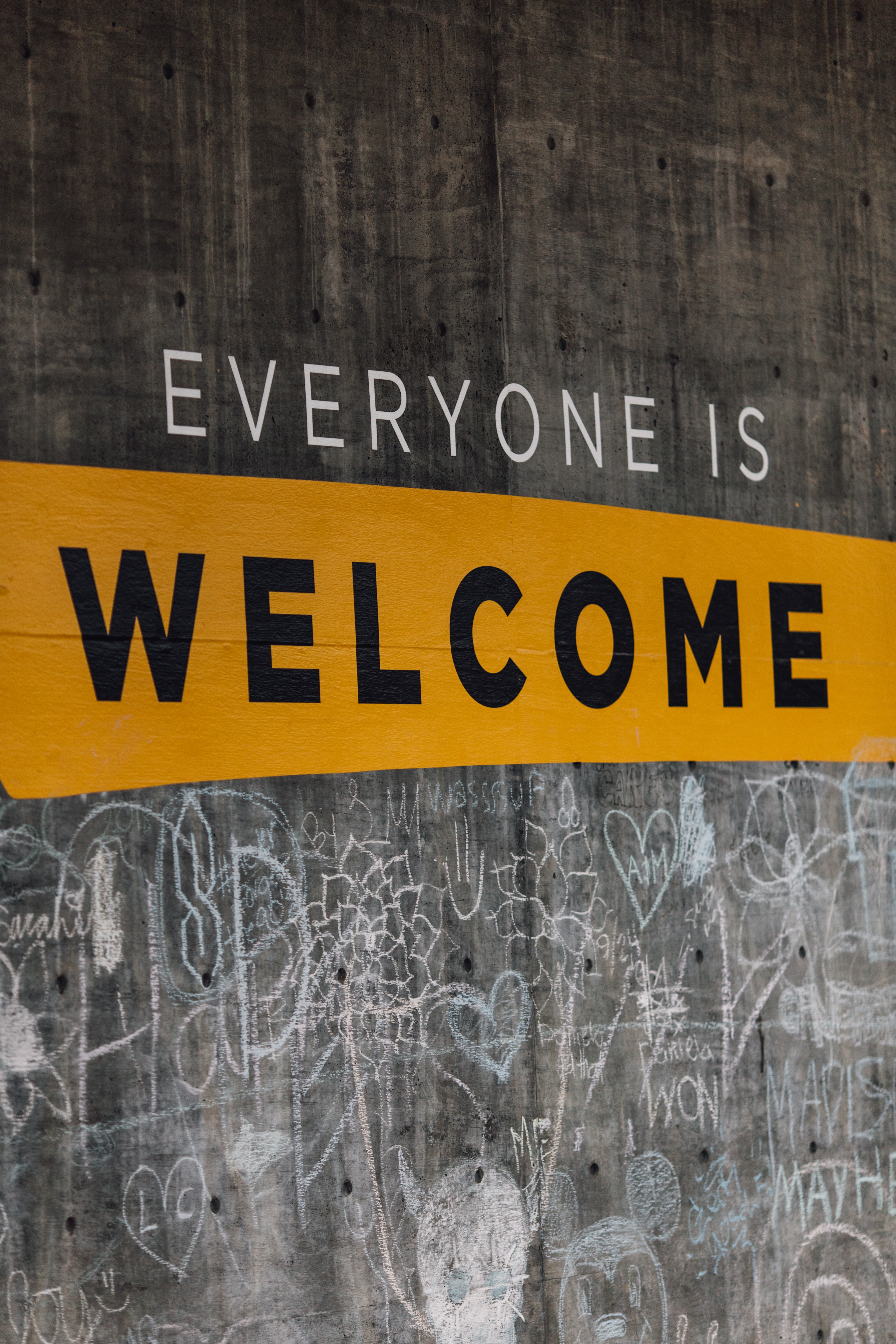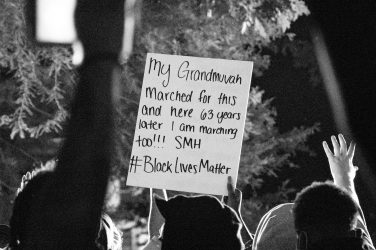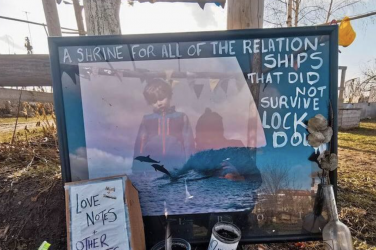As long as the UK government continues to frame asylum-seekers as “others” and potentially illegal, those people are not seen as individuals in need of help but rather as a threat – so writes Rachel Trafford, after a recent statement from the UK’s Home Office.
The Home Office has recently admitted politically what was true legally all along: the “vast majority” of the people crossing the English Channel in small boats over the summer are “genuine refugees”. This admittance, however, is a double-edged sword; it continues to perpetuate the damaging “deserving and undeserving” storyline. Implicit in the Home Office’s statement is that there are still people who should be seen as “undeserving” and illegal. The statement does not go far enough to repair the damage to the hundreds of people seeking safety and asylum on UK shores, repeatedly demonised for risking their lives in numbers over the last few months.
How false narratives turn asylum-seekers into “others”
“Small boat crossings” on the English Channel are once again dominating headlines, with terms like “wave” and “record-breaking” horde used again and again by our politicians in the House of Commons. Othering people separates them from their humanity and individuality, providing the frame for xenophobic government reaction and policy. Not only does it promote entirely false narratives, it skirts governmental responsibilities under international and human rights law. The falsities quickly mount up. A spokesperson for UK Prime Minister Boris Johnson claimed in early September that it was “entirely right” to deport migrants who “have travelled through safe country and have no rights to remain in the UK”. In the parliamentary chamber in August, Johnson himself condemned the act as criminal. Chris Philp, immigration minister, also described the “unacceptable increase” in crossings in recent months as illegal migration.
Othering people separates them from their humanity and individuality, providing the frame for xenophobic government reaction and policy.
It is true that numbers of displaced people crossing the English Channel have increased over the summer months, as they usually do with seasonal calmer waters. 1,450 people reached British shores in August and around 5000 people in total have crossed the English Channel this year. Described in statistics as “incidents”, when people have managed to safely land on English shores and where nationalities are known, 44% are Iranian, 37% from Iraq and almost 18% from Syria, all locations severely affected by conflict the British government has been involved in or financing.
Of the people making this crossing, over 98% of them claim asylum once they reach the UK. According to the latest Home Office statistics, in 2020 so far there have been 16,658 total applications for asylum, compared to 34,354 in year ending September 2019. In the second quarter of 2020, from April-June, applications almost halved from the first three months of the year. In comparison to the same period last year, this is a drop of 37%.
The legal obligation to protect asylum-seekers

At a 3rd of September Home Affairs Committee meeting giving evidence about the small boat crossings in the channel, senior officials Abi Tierney and Dan O’Mahoney had to agree that the drop in numbers of people seeking asylum is actually four times the size of the increase of those arriving in small boats. O’Mahoney, the ‘Clandestine Channel Threat Commander’ stated his role as “protecting life and the UK border, and to do that by ending the viability of the small boat route to enter the UK illegally”, echoing Priti Patel’s pledges from early August to make the channel crossing “unviable”.
Throughout the committee hearing and in other politicians’ statements, the UK was posited as a vulnerable target for “illegal migrants”, with activity mainly facilitated by criminals. A complete oxy-moron, these statements blatantly abuse the law to back up false statements by the government and mainstream media. If people arriving are part of criminal action, or have been trafficked or smuggled, then – by that same virtue – surely they have claim to asylum and therefore safety on our shores?
Asylum-seekers in times of a global pandemic
To paint the people who make this journey as “illegal” is completely untrue. Every single individual has the right to claim asylum and to be fairly heard in that country. However, asylum cannot be claimed outside of UK soil. Due to the pandemic, all other routes to get into the UK have been almost entirely cut off for months, leaving people no choice but to make increasingly treacherous and sometimes fatal journeys across the busiest shipping lane in the world to attempt to reach safety.
Discussions also went on to talk about the “legal capacity” to intercept boats at sea, of which authorities have absolutely none. Creating a “returns policy” with the French post-Brexit without giving each individual the right to safety, shelter and to have their case heard would be illegal under international law.
Every single individual has the right to claim asylum and to be fairly heard in that country.
With even the incredibly dangerous options of hiding in the belly of a plane, or the back of a lorry cut off, COVID-19 has shown the impact of the lack of safe passages for asylum seekers. By process of elimination, closing all other routes and failing to provide the reforms that NGO’s have for years been calling for, the UK government continues to engineer the same outcome.
Safety?
The idea of displaced people “bypassing first safe country” and automatically having no right to remain is not and has never been written into law, not even the much-cited Dublin Regulations. Every individual has the right to claim asylum where they wish. With over 160,000 displaced asylum seekers in France in 2019, just over 1% made the crossing. Policies treating northern France and the Greek islands as overcrowded holding pens that feed the exact criminal activity they are publicly denouncing, while still maintaining that these countries can be considered “safe”, is wanton double-speak.
In reality, experiences of asylum seekers on the ground often amounts to a humanitarian outrage. A new report by Choose Love/Help Refugees details the “multiple crises” of poor sanitary conditions, hunger and danger that thousands of displaced people trapped in France face until today. From April to June, Human Rights Observers recorded 308 forced evictions by police, moving belongings almost every night from places people attempt to bed down on the streets and in forest at the height of the pandemic. It also reports 1007 items of personal belongings – such as phones – having been seized.
These human rights violations belie the idea of what a “safe country” means and the protection every individual has a right to by claiming asylum. These contraventions of human rights law, reported on the ground since 2016 and even publicly claimed by the UN for over a year, only add to the trauma and loss of dignity people feel on a daily basis pushing them to resort to desperate journeys.
As asylum applications drop and numbers in comparison to the EU remain so low, the question of why remains around this government’s approach. With the time for the UK leaving the EU fast approaching and no deals on the horizon, the UK will no longer be able to resource to the current legislation to return people to mainland Europe. Laying the blame at the feet of those most in need of help appears to be the only option left in the government’s panic to protect Brexit for the inevitable continuation of arrivals – and deaths. Simultaneously pronouncing British strength, while victimising the country as a porous “target”, is symptomatic of the country’s identity crisis and pandemic response. People claiming their legal right to safety can no longer be seen as collateral damage.
Rachel Trafford is a political correspondent writing for the Immigration Advice Service, a UK-based organization of lawyers assisting migrants to navigate UK migration law. For more information you can visit their website: https://birmingham-immigrationlawyer.co.uk/.
Cover photo: Katie Moum (Unsplash), Unsplash licence





